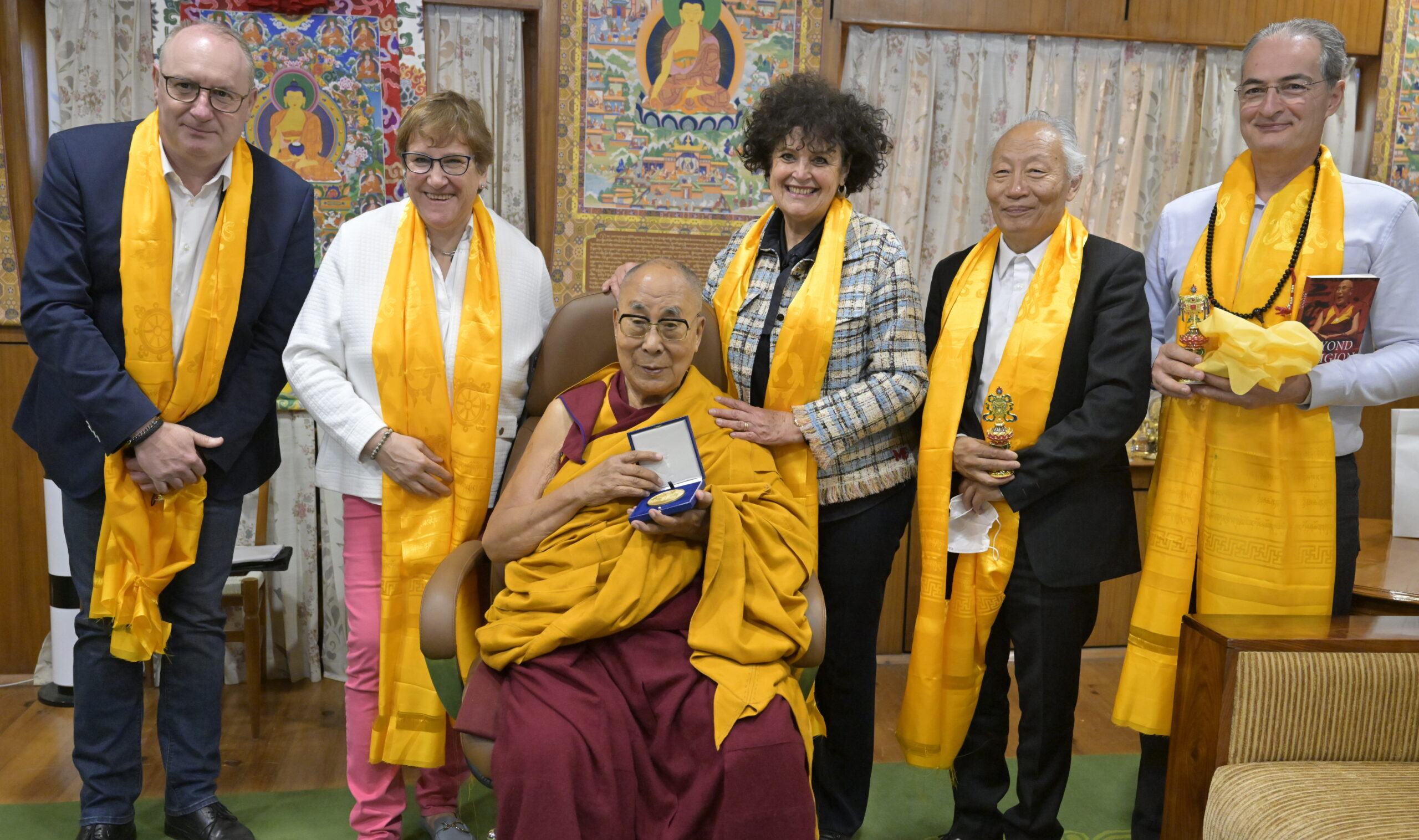



China should immediately release hundreds of Tibetan monks and villagers who were detained while peacefully protesting the construction of a hydroelectric dam in China’s western Sichuan province. The dam, which will generate electricity for eastern China, will submerge historic monasteries and numerous Tibetan villages. At least 300 villagers traveled to Derge county government in Sichuan province on February 14, 2024, to protest the building of the Kamtok dam. Videos obtained by Tibetan exile media and confirmed by Human Rights Watch show villagers from the area of Wontoe protesting the dam’s construction. On February 20 and 21, teams of county officials and police arrived at two monasteries in Wontoe township in preparation for their demolition as part of the construction of the Kamtok dam. Monks and villagers peacefully appealed to the authorities for dialogue, but the police beat and detained large numbers of those who were part of the protest. Five major hydroelectric dams are already in operation or under construction along this stretch of the river, with an installed capacity of 8.6 gigawatts. Since 2017, authorities have relocated over 11,000 people from 7 townships in Gonjo and Markham counties bordering the Jinsha River for “poverty alleviation” reasons. The Chinese authorities’ mass arbitrary detention of peaceful protesters highlights grave concerns about the effects of further dam construction on Tibetans’ heritage, culture, and livelihoods.
President Eustache-Brinio on behalf of the Tibet Support Group in the French Senate expressed alarm over the brutal crackdown of peaceful protesters, including monks, against a dam project in Derge in eastern Tibet and calls for the immediate release of those arrested. The statement was issued ahead of the 65th anniversary of the Tibetan National Uprising Day. President Eustache-Brinio urged the Chinese authorities to take into account the consequences of the construction of dams, which will lead to massive and forced relocation of the local population as well as the destruction of ancient Tibetan Buddhist monasteries. The French Senate calls for the protection of the cultural and religious heritage of the Tibetans.
Dutch Ambassador for Human Rights, Wim Geerts, expressed serious concern by reports of mass arrests of Tibetans protesting against the construction of a dam threatening the destruction of six monasteries and two villages in Derge, eastern Tibet. Ambassador Geerts calls on China for the release of those arrested for exercising their fundamental rights of freedom of expression and underlines his country’s commitment to upholding that right. [25732b73] [cd9f0db6]
Tibetan activist Chemi Lhamo spoke at the 16th Annual Geneva Summit for Human Rights and Democracy, highlighting the violence faced by dissenting voices due to global inaction. Lhamo criticized the international community for its complacency and inaction, stating that it emboldens regimes like China. She shed light on the struggles faced by Tibetans under Chinese rule, emphasizing the resistance against cultural erasure and political suppression. Lhamo called for global solidarity and concrete steps to support Tibetans in their quest for freedom. She also condemned the imprisonment of individuals expressing Tibetan identity, the disappearance of the Panchen Lama, and the environmental devastation caused by Chinese mega-developments. Lhamo highlighted the assault on Tibetan language and the transnational repression by the Chinese government. She urged democratic nations to prioritize human rights over economic ties and stand in solidarity with Tibetans. [57b13505]
The East Turkistan Government in Exile (ETGE), in collaboration with the East Turkistan National Movement and East Turkistan National Fund, has announced a march scheduled for Friday, from the White House to the State Department in Washington DC. The march aims to commemorate the 2009 Urumchi massacre and to call for meaningful action against China’s ongoing campaign of colonization, Uyghur genocide, and occupation in East Turkistan (currently Xinjiang province of China). The organisers are advocating for official recognition of East Turkistan as an occupied territory, akin to Tibet. Central to their demands is the appointment of a Special Coordinator for East Turkistan/Uyghur issues within the State Department. This march represents a unified call for international attention and action to address the humanitarian crisis unfolding in the region. On Monday, the 103rd anniversary of the Chinese Communist Party (CCP), the party faced severe backlash from human rights organisations and ethnic groups for alleged human rights violations in Xinjiang, also known as East Turkistan. [e18b3bb8]